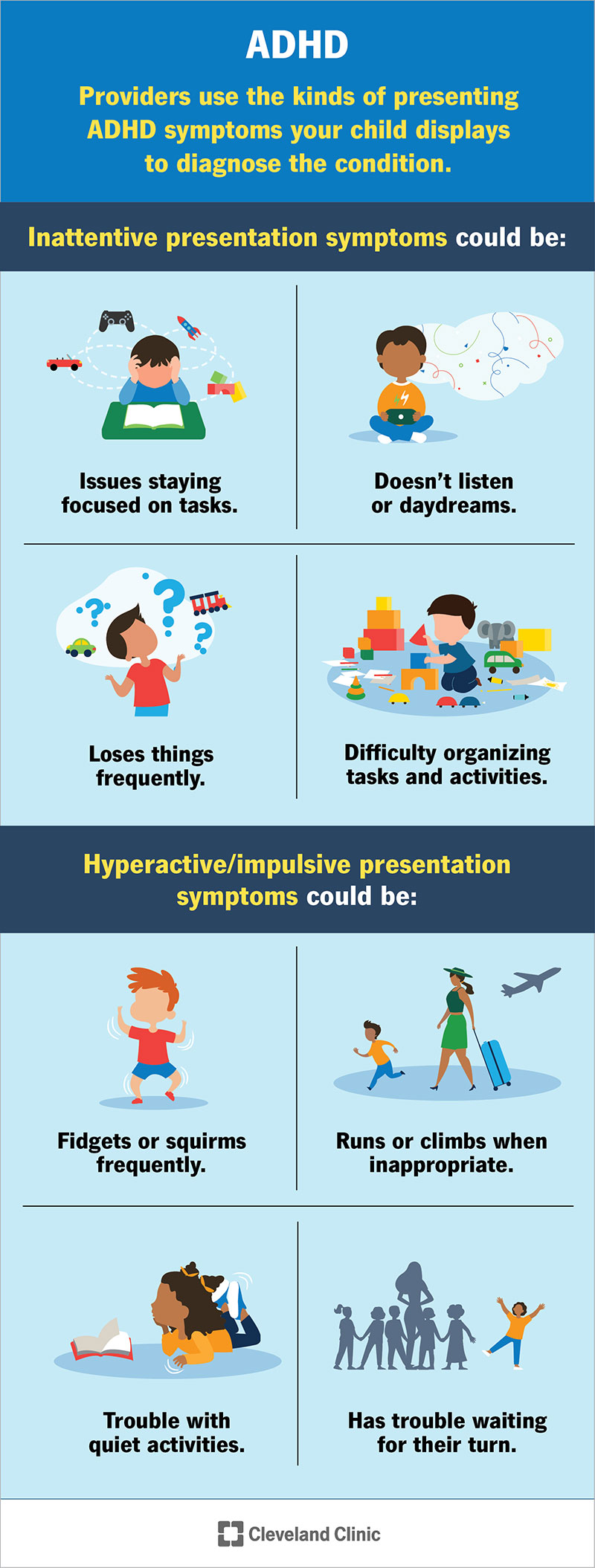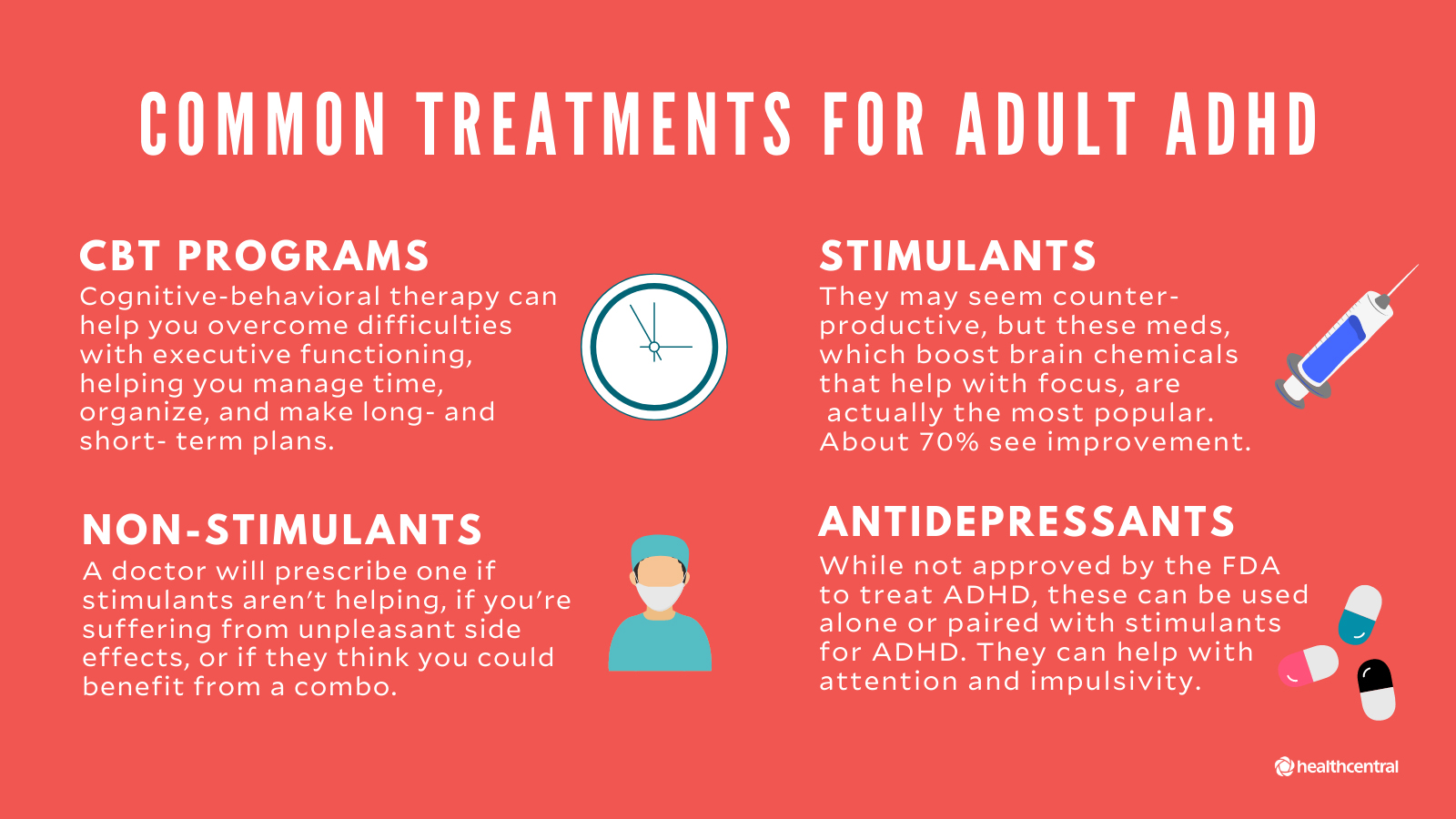Your Overview to Locating the Right ADHD Treatment for Long Lasting Results
Navigating the complexities of ADHD therapy needs a nuanced understanding of both the condition and the myriad choices readily available for effective monitoring. It is crucial to acknowledge that what works for one person might not always generate the same outcomes for one more.
Understanding ADHD and Its Effect

In grownups, ADHD can result in obstacles in work environment atmospheres, affecting efficiency, time monitoring, and interpersonal relationships. Typically, undiagnosed or incorrectly managed ADHD can add to co-occurring psychological health and wellness concerns, such as stress and anxiety and anxiety, further complicating a person's total wellness.
The social perception of ADHD can vary, bring about stigma and misunderstanding, which might prevent individuals from looking for help. As awareness grows, it is vital to foster a setting that promotes understanding and assistance for those impacted by ADHD, highlighting the requirement for precise medical diagnosis and tailored techniques to minimize its influence on daily life.
Overview of Therapy Options
A thorough technique to treating ADHD incorporates a range of options customized to the person's special requirements. These options can broadly be classified right into behavioral treatments, psychoeducation, and lifestyle alterations, alongside medicinal treatments that might be checked out later.
Behavior treatments, such as cognitive-behavioral treatment (CBT), focus on customizing particular actions and establishing coping strategies to take care of signs efficiently. Psychoeducation plays a critical duty in equipping both people and their family members by providing information about ADHD, its challenges, and efficient methods for support.
Way of life adjustments can significantly impact ADHD monitoring. Regular exercise, a well balanced diet plan, and sufficient sleep add to general wellness and signs and symptom control. Mindfulness techniques and relaxation methods can also enhance emphasis and lower impulsivity.
Support teams and household therapy can promote a sense of community and understanding, assisting individuals feel less separated in their experiences. Each therapy alternative need to be thought about combined with the person's preferences and scenarios, guaranteeing an all natural method that advertises long-term success. Inevitably, the goal is to develop a personalized treatment plan that deals with the particular challenges linked with ADHD while boosting overall lifestyle.
Drug: Advantages And Disadvantages
Medication plays a pivotal role in the therapy of ADHD, with many choices readily available that can significantly minimize signs for many people. Energizers, such as methylphenidate and amphetamines, are frequently suggested and have revealed efficiency in enhancing emphasis, decreasing impulsivity, and boosting general actions. These drugs work by boosting dopamine and norepinephrine levels in the mind, which are usually dysregulated in those with ADHD.
Some individuals might experience side results, including sleeping disorders, reduced cravings, or raised anxiety. Furthermore, not all clients react to stimulant medications, leading some to explore non-stimulant alternatives, which might have a delayed onset of activity or various side impacts.
It is crucial for individuals and their families to weigh these advantages and disadvantages carefully. Balancing the benefits of signs and symptom administration versus prospective negative effects is critical for achieving optimal therapy outcomes. Cooperation with medical care companies can help with educated decisions, ensuring that drug becomes part of a comprehensive ADHD management strategy.
Behavior Modification Methods

One generally employed method is Cognitive Behavioral Therapy (CBT), which helps individuals identify and alter adverse thought patterns that add to ADHD-related challenges. Therapist for ADHD. Through CBT, customers learn to set practical goals, take care of time efficiently, and develop business systems
An additional efficient strategy is Moms and dad Management Training (PMT), which educates parents on exactly how to enhance favorable habits and reduce adverse ones through regular technique and communication methods. This technique promotes a helpful home atmosphere that encourages behavior enhancements.
Social skills training is likewise indispensable, aiding people with ADHD navigate social interactions much more effectively. Role-playing and modeling suitable habits can enhance social competence and decrease anxiousness i am feeling sad in social circumstances.
Way Of Living Modifications for Better Management
How can way of living changes significantly boost the management of ADHD signs? Applying tactical lifestyle alterations can cause considerable improvements in emphasis, organization, and emotional law for individuals with ADHD.
To start with, developing an organized day-to-day routine aids in developing predictability, which can minimize feelings of bewilder. Regular routines for dishes, research, and sleep can boost daily functioning.
Including normal physical activity is also important, as workout has been revealed to enhance dopamine levels, boosting focus and motivation (Therapist for ADHD). Going for at the very least thirty minutes of moderate exercise most days can be advantageous
Nourishment plays an essential role as well. A her response balanced diet plan abundant in omega-3 fatty acids, entire grains, and protein can sustain cognitive function. Restricting refined sugars and high levels of caffeine might decrease symptoms, as these can result in power crashes and irritability.
Final Thought
Finally, finding the best ADHD treatment necessitates a diverse strategy that thinks about specific requirements and preferences. A mix of medicine, behavior modification, and way of living adjustments can dramatically enhance sign administration and general well-being. Engaging in psychoeducation and establishing structured regimens better sustains effective treatment approaches. Partnership with health care experts and open interaction with assistance networks are vital parts in browsing the complexities of ADHD management, eventually resulting in long-term results and enhanced lifestyle.